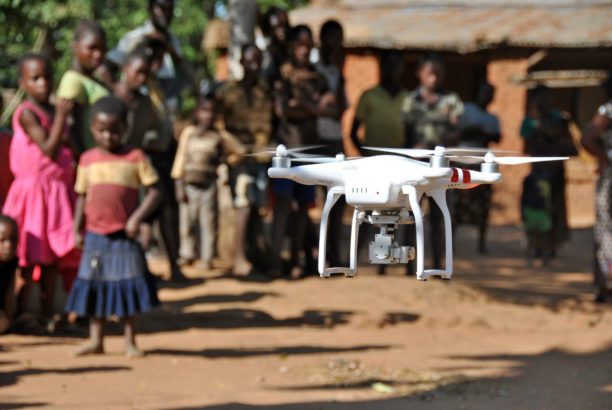Calling all drone operators – here’s your chance to save lives and see the world. UNICEF Pacific has put out a worldwide request for tender (RTF) to drone companies who could deliver vaccination supplies in the remote Republic of Vanuatu.
This is Vanuatu – a Y-shaped archipelago consisting of 83 volcanic islands, running 1600 km north to south. 65 of the islands are inhabited: only 20 have roads or airfields. Many are accessible only by boat.
That’s a scenario where drones provide the best – maybe even the only – solution to a difficult and life threatening logistical problem.
“UNICEF’s Innovation Unit is constantly striving to use new technology to address very serious problems and reach the most vulnerable and isolated children in all sorts of environments around the world. Drone delivery of life-saving vaccines has the potential to be an absolute game changer, not only for helping people who live in remote and extremely inaccessible locations, but in addressing consequent disparities in access to health services,” said Felicity Wever, Director of Programs, UNICEF Australia.
UNICEF is looking for several drone delivery providers to service these islands, providing life saving vaccines to the children of Vanuatu. The tender closes on June 20, and to attract as many applicants as possible, UNICEF reached out to DRONELIFE to help get the word out. After the tender process closes, selected providers will run trials to outlying island locations between September and November.
Interested service providers should see the RFT here – and please spread the word about this important project. Drones offer a critical delivery solution well beyond retail and convenience items – and this is one of the best examples of a job only drones can do.
Miriam McNabb is the Editor-in-Chief of DRONELIFE and CEO of JobForDrones, a professional drone services marketplace, and a fascinated observer of the emerging drone industry and the regulatory environment for drones. Miriam has penned over 3,000 articles focused on the commercial drone space and is an international speaker and recognized figure in the industry. Miriam has a degree from the University of Chicago and over 20 years of experience in high tech sales and marketing for new technologies.
For drone industry consulting or writing, Email Miriam.
TWITTER:@spaldingbarker
Subscribe to DroneLife here.
